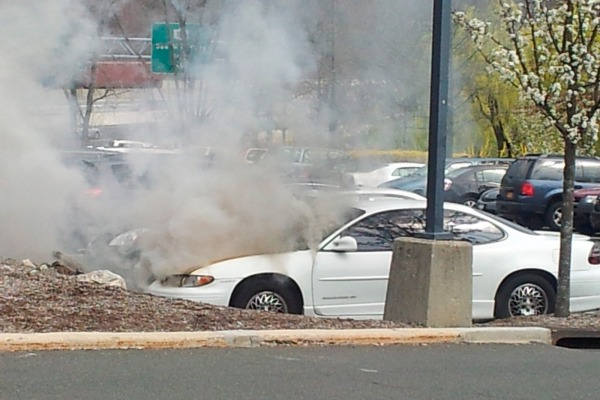
The National Highway Traffic Safety Administration says that car recalls never really die. Once issued, they are in force as long as the manufacturer remains in business and parts are available to repair the vehicles involved.
As far as an individual vehicle is concerned, the manufacturer considers its job done once the required recall repair has been performed.
But if a problem continues or recurs after a car recall repair, consumers might be up a creek.
When Trouble Persists
In the case of the GM recall of cars with 3.8-liter V6s that are potentially susceptible to engine fires, a number of car owners have complained on Edmunds forums that even though they received a recall notice and had the required repair work done, they later lost the car to an engine fire anyway.
One woman reported experiencing two fires in two years. The second occurred after she and her father had performed do-it-yourself repairs to get the car running after the first fire.
Jorge Chica, a New York-based customer-service specialist for a cell phone company, says his 1997 Pontiac Grand Prix GTP caught fire in his parking lot at work just a few weeks ago, more than three years after he'd taken it in to a local GM dealership in 2008 to have the recall work done.
"I bought it in 2007 from my best friend. He was the original owner so I knew how well it had been taken care of," Chica tells Edmunds. "I drove it regularly as my commuter car, 76 miles a day on the highway, and had no problems until the fire. It was always a good, reliable car."
On the day of the fire, Chica had driven from his office to an auto parts store at lunch to pick up a new side mirror for the Pontiac. "I came back from lunch and parked and went into my office and sat down and a co-worker ran by and said there was a car out in the lot that was smoking like it was on fire. I went over to the window and looked out and saw white smoke coming from under the hood of my car."
Chica called the fire department and was walking toward his car when the smoke turned "all black and flames started coming out." By the time the fire was extinguished, the front of the Pontiac "was just incinerated, and the car parked next to mine was damaged, too," he said.
His liability insurance paid to repair his co-worker's damaged car, but Chica didn't carry comprehensive on a car he'd bought for $3,000, so he wasn't able to file a claim for his own loss. "It was towed away to a storage yard, and later I signed it over to them for disposal so I wouldn't have to pay the daily storage fees."
It is not clear what recourse car owners have in such cases. GM spokesman Alan Adler said that most fires are "due to other causes related to the age of the vehicles and [to] maintenance practices." A fire in a vehicle that had been repaired under a recall "would need to work with a GM dealer to determine if the issue was related to the repair procedure." He said that state statutes of limitations control the length of time a consumer has to make a claim.
Proving that the fire was caused by the same circumstances that prompted the recall is often difficult. In the case of the GM recall, many of the cars involved in the most recent fires were purchased for relatively little money and the owners, like Chica, found it cheaper to have the car junked than store it until the cause of the fire could be established.